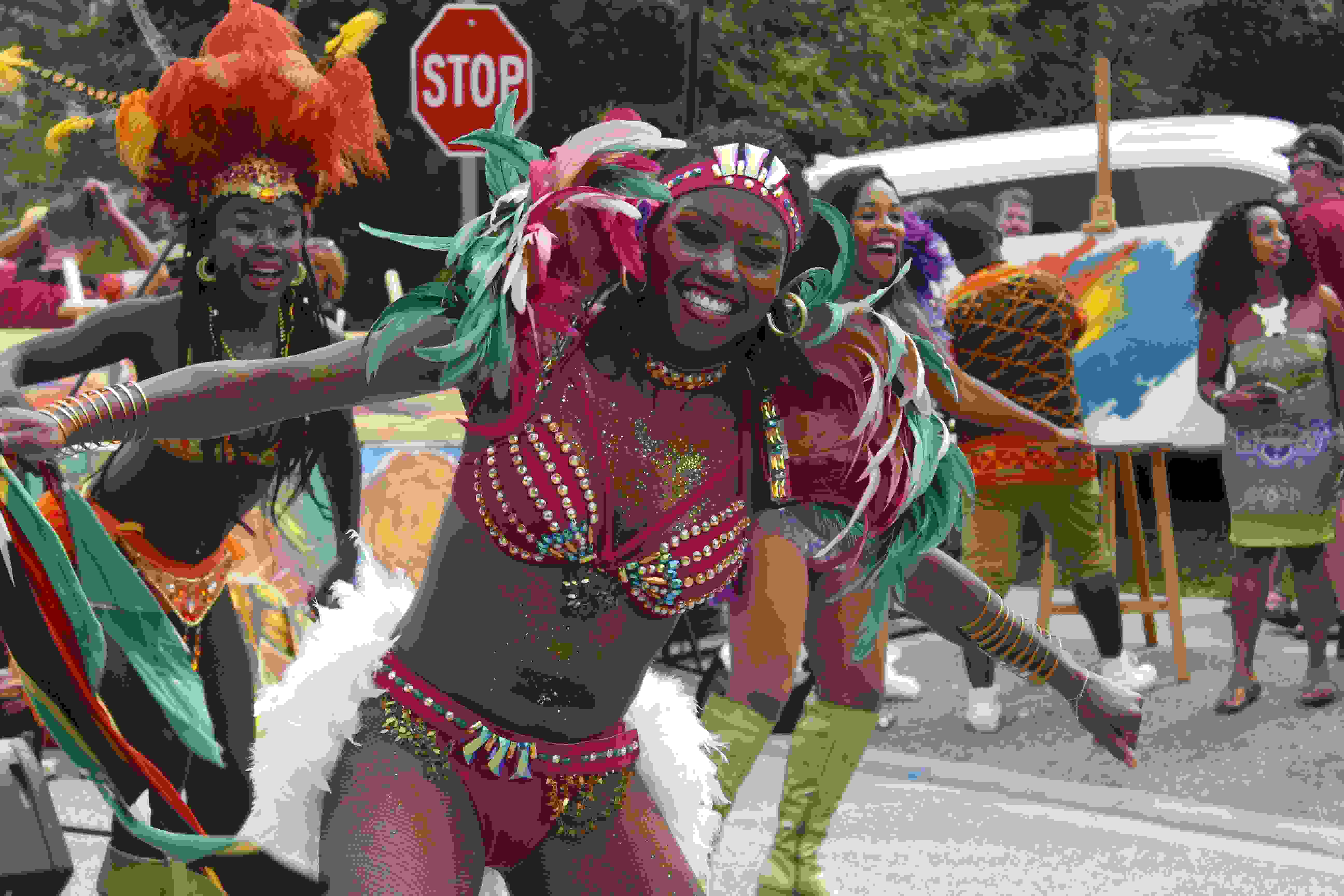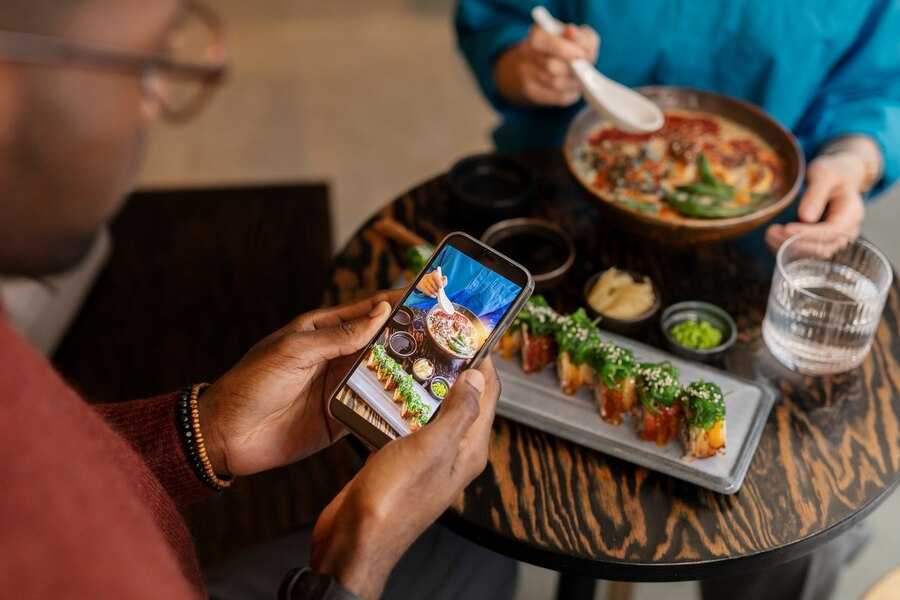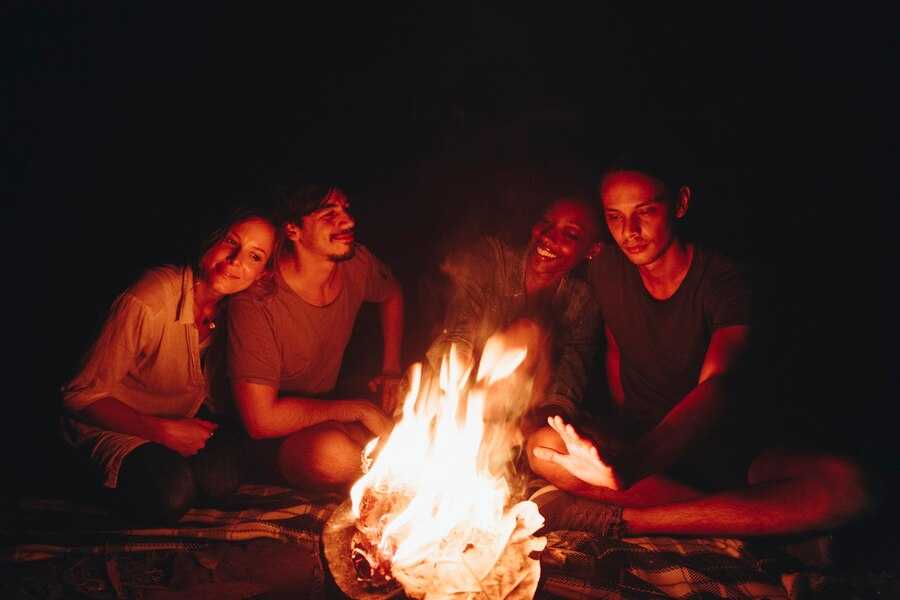BY: KRISTINA RAMCHARRAN
Sights of colorful art. Live reggae and jazz music to tease the ears. The scent of delicious food in every corner. Music, performances, and vendors filled the streets for the Taste of Orangeville festival.
With over 15 restaurants participating located in downtown Orangeville, guests were treated to an array of cuisine from around the world. and at the center of the entire festival was Soulyve Caribbean Kitchen, a Caribbean fusion eatery, and patio, highlighting the most popular Caribbean foods. The restaurant was in fact not just the center of Taste of Orangeville, but it was also the main attraction of its very own festival held in unison, the third annual CaribFest 2018.
The local Caribbean festival flourished with vendors, music, food, and art, as all those involved in the festival strive to highlight the best in Caribbean culture. Vendors sold a variety of products from cultural clothing and jewelry to hair and skin products.
Vendor Althea Fraser, who has been present at the festival in previous years, says the festival works greatly at incorporating diversity into the developing town of Orangeville. Fraser runs a vegan skin care line, and as a holistic nutritionist, she decided to make a line of products that especially deal with sensitive skin. “CaribFest is great, it’s a nice family oriented event, it offers a lot of exposure and opportunities for people to learn about the brand.”
Fraser also notes, “well I know Orangeville is up and coming, and the population has grown quite a bit, and I think it’s great that there’s so many diverse organizations and businesses that can come out and promote their brands.”
Fellow vendor Aaron Gorge experienced his very first CaribFest this year and notes that he’ll surely be back next year. “This is my first time here for Horizons Insurance, just promoting disability insurance,” said Gorge on the purpose of his booth. He notes that he thought the festival would be an ideal place to inform others of how important disability insurance can be. “In the event that something happens, there’s money still coming into the family, so they can maintain their lifestyle.”
Gorge adds, “so far it’s been good, a lot of people coming through, a lot of friendly people, and we’re looking to sit down with them after and see how we can help them.”
Throughout the day, festival-goers were treated to numerous cuisines inside of the Taste of Orangeville tent, and all the best in Caribbean culture outside of the tent. The event featured live canvas paintings by Kofi’s Art, music from Carib101 Radio’s DJ Rory, Jason Wilson and The Perennials playing all the best in jazz and reggae, the creation of a CaribFest art mural, and a special Soca dance performance by the girls at Carnival Spice.
The main organizer of CaribFest and owner of Soulyve Caribbean Kitchen, Phillip Dewar, says before CaribFest started, “our goal is to bring the Caribbean to Orangeville, a small town.” And the best way to do that was through his restaurant, Soulyve Caribbean Kitchen. “We wanted to find a way to ambassador the Caribbean out here, we had a small restaurant out here.”
From small beginnings to where CaribFest is now, just three years later, Dewar has noticed the impact it has had on the community. “The community has embraced us and we wanted to find a way to continue to push that message. By having this show we found a way to mesh people with food, music, and culture.”
Dewar adds, “We had a very good response and we just wanted to continue to grow as a family. Today we are showcasing the Caribbean heritage, food, and clothing, jewelry, hair, skin care, natural oils. We have all sorts of restaurants from Orangeville to showcase their variety.”
Dewar looks toward expanding CaribFest in the following years, by improving the setup and making it more efficient. He also notes one of their goals is drawing in more involvement from outside the Orangeville community to help build the event to something as large as the Caribbean events more central to Toronto.
The festival’s third year ended with a huge success, with diverse crowds, family fun, and food to awaken the senses. In a time where the community is trying to distract from the everyday troubles of crime and politics, a good light-hearted festival is just what the people needed to bring a smile to their faces. Given in all of the latest happenings around the Greater Toronto Area, Dewar notes, “We found that this was a good time to host our festival.”
The free event is slated to happen again next year, with the date and entertainment unannounced. More information on future CaribFest events can be found on the CaribFest page on Facebook.


 Community News2 weeks ago
Community News2 weeks ago
 Community News2 weeks ago
Community News2 weeks ago
 Community News2 weeks ago
Community News2 weeks ago
 Community News1 week ago
Community News1 week ago
 Community News1 week ago
Community News1 week ago
 Community News1 week ago
Community News1 week ago
 Community News1 week ago
Community News1 week ago
 Community News2 weeks ago
Community News2 weeks ago






























